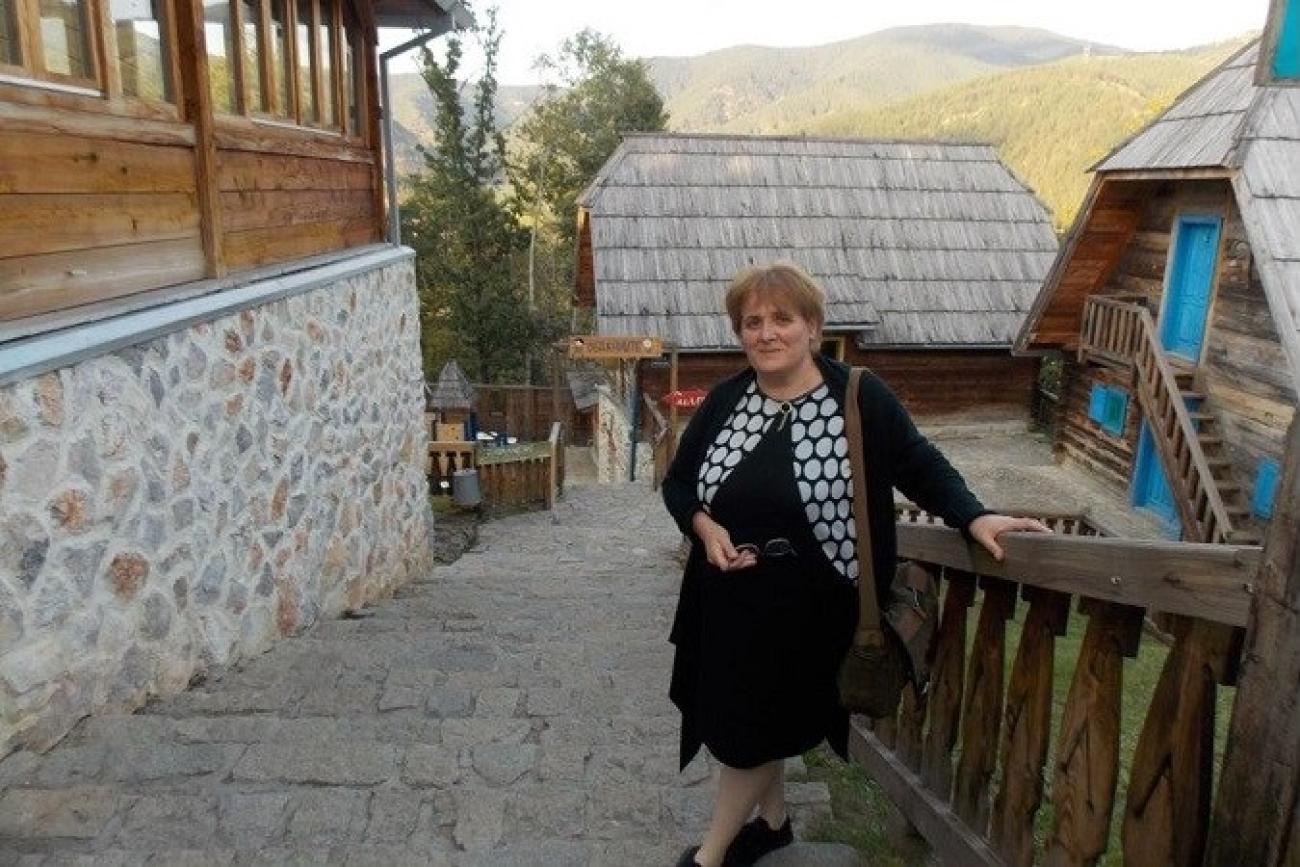When Ozurgeti district residents need to get advice and help, they know to come to the home of Ketevan Khidasheli. Ketevan is a fierce activist for women's rights, working to protect women from gender-based violence, open opportunities for youth and help religious minorities integrate into the local community.
As important, she is trying to convince the women themselves.
“I have to convince women every day that they have great potential and can achieve anything they want if they try,” says Ketevan Khidasheli.
10 years ago, Ketevan dropped city comfort for rural activism and moved from vibrant Tbilisi to the small village Dvabzu, located in the Ozurgeti district of western Georgia’s Guria region.
“Activism began for me in 2008, when my family and I moved from the capital to Dvabzu. At first, I did not really understand what activism entails, but with Taso Foundation [a local NGO that works for local women’s empowerment] training and support, I founded a group – the Dvabzu Women’s Center - for other keen parents,” Ketevan says. “We formed a youth club for children and founded a school newspaper that soon became a community newspaper called Soplis Khma (The Village Voice).”
A crucial emotional outlet for generations of peasant women, the newspaper Soplis Khma (The Village Voice) is circulated for free and cover topics of interest for the locals. These days, she shares her newspaper experience with community foundations in other regions.
The Dvabzu Women’s Center gradually expanded its areas of operations. Along with conducting trainings on domestic violence, they arranged a bike tour of Ozurgeti region under the slogan “No to Domestic Violence” and visited other villages, displaying hotline numbers for battered spouses and disseminating flyers. After that, the referrals increased: women with domestic violence issues started to come to them for help. This gave a new impetus to her work aimed to raise public awareness for women’s empowerment and domestic violence issues.
In 2010 together with a group of local activists, Ketevan set up a local organization to fight gender-based violence, provide opportunities for women and youth, and advocate for human rights. The non-governmental organization “Women for Regional Development” has become an essential part of the village life and the region’s leaders in advocating for human rights and women empowerment.
Although urban women have made strides toward equality, thanks to better education and opportunities within a growing white-collar workforce, rural women are often stuck in a harsh lifestyle unchanged from an earlier era.
“We work with the local women to explain what kind of municipal services and assistance they can ask for!” she says.
In 2012 Ms. Khidasheli volunteered for UN Women’s project “Women for Equality, Peace and Development.” “With UN Women’s support, we trained a local psychologist and a lawyer, and we taught computer skills and handicrafts to survivors of domestic violence. Three of these women are very successful now. One of them, Leila, a bakery owner, is even an activist of ours. She managed to build a new life for herself and her little son. Even more, she started assisting other women, who suffered the same domestic problems, to believe in themselves and find courage for a real change,” says Ketevan.
To make the fight against gender-based violence more systemic, Ketevan now works to establish a multifunctional group in her region which will include representatives of the state agencies responsible for addressing domestic violence cases – local governance, police, healthcare and education authorities.
Ketevan looks forward to the opening of a new municipal kindergarten in Nasakirali, a small Muslim community right next to her village. “It took two years and a lot of effort, but we did it – the kindergarten opens end of this year to take care of up to 90 children. This is a real victory and I am very proud of it!” Ketevan says.
She also plans to launch an internal online resource for the group members for speedy sharing of information and coordinated response.
“I know it is not easy to be a woman, especially if you live in rural areas. When we started our work, the locals thought that we were interfering in their family affairs. Some even refused to greet me because I was an activist, insisting that my activities were inappropriate for a woman. Incidentally, I start every training and seminar by talking about my experience - personal stories can have the greatest impact on people’s perceptions. I have to convince women every day that they have great potential and can achieve anything they want if they try,” says Ketevan Khidasheli.
Ketevan Khidasheli is the 2017 champion of the annual Kato Mikeladze Prize which acknowledges outstanding achievements in supporting women’s rights and gender equality in Georgia. The prize bears the name of the early 20th century Georgian feminist and founder of Georgian suffragism, and is the highest award given to women’s rights activists in Georgia.
In March 2018, Ketevan Khidasheli, with the support from UNDP, attended the annual session of the UN Commission on the Status of Women (CSW) in New York, USA, to discuss the empowerment of rural women and girls.
“I want to tell all women – stop being so centred on your problems and see what you can do for others. To counter today’s lack of volunteerism, more female activists are needed. Our potential is not limited to the kitchen. We can do much more. Activism is an opportunity to realize such potential. Always be willing to make a change and not leave our current problems unresolved for future generations,” says women rights activist, Ketevan Khidasheli.



